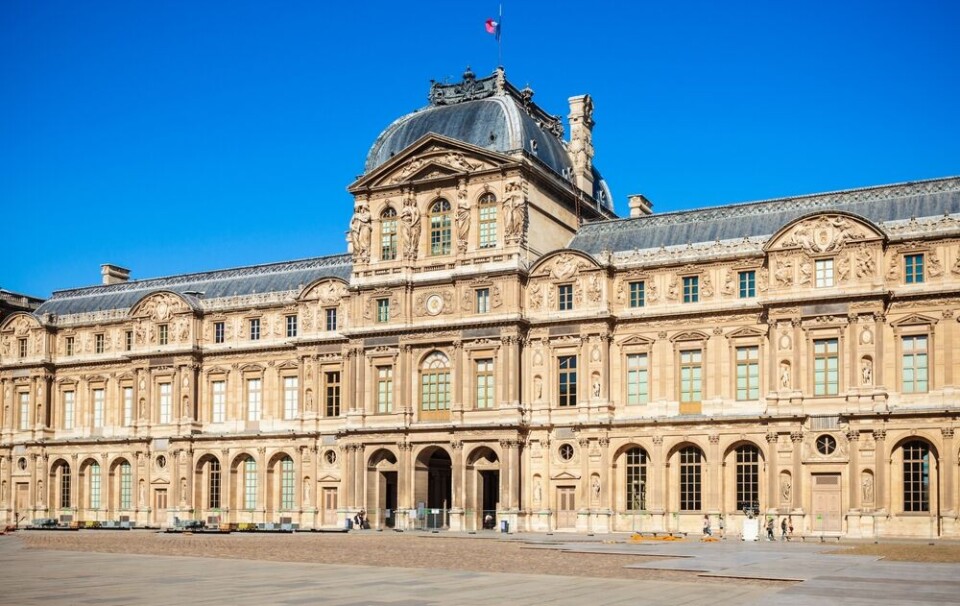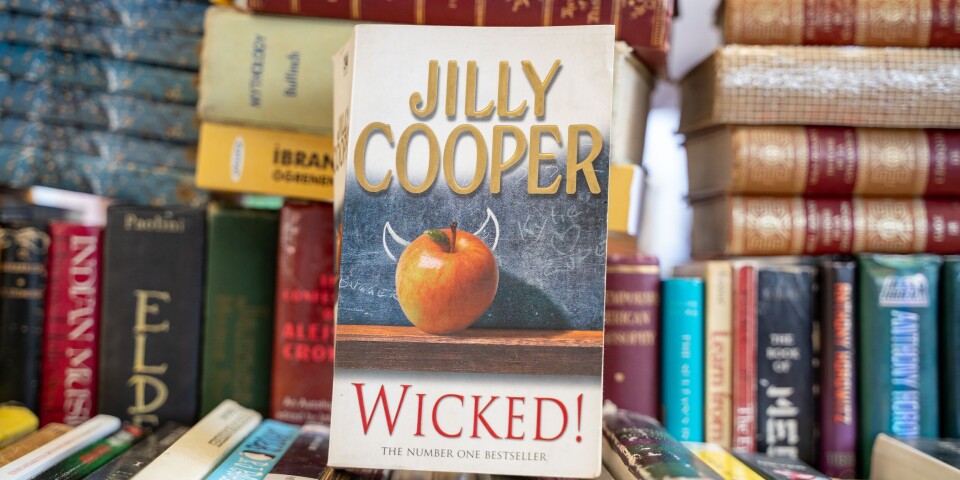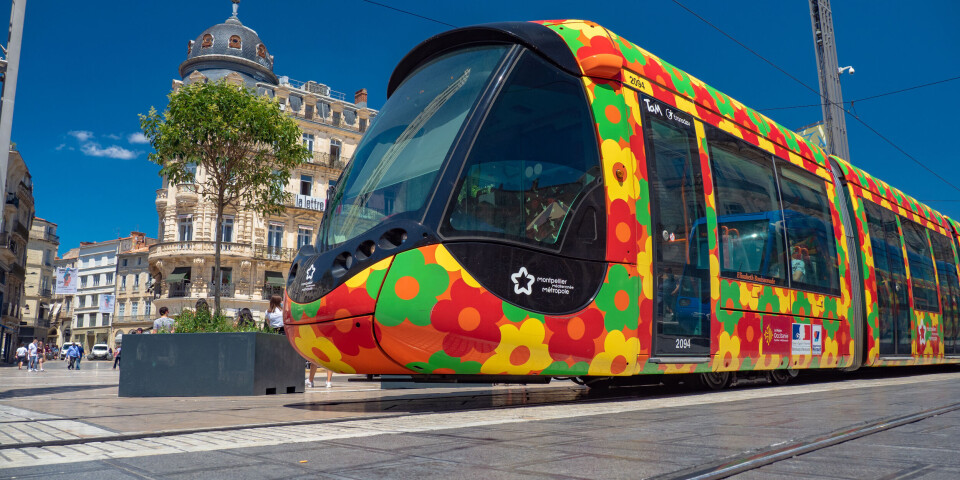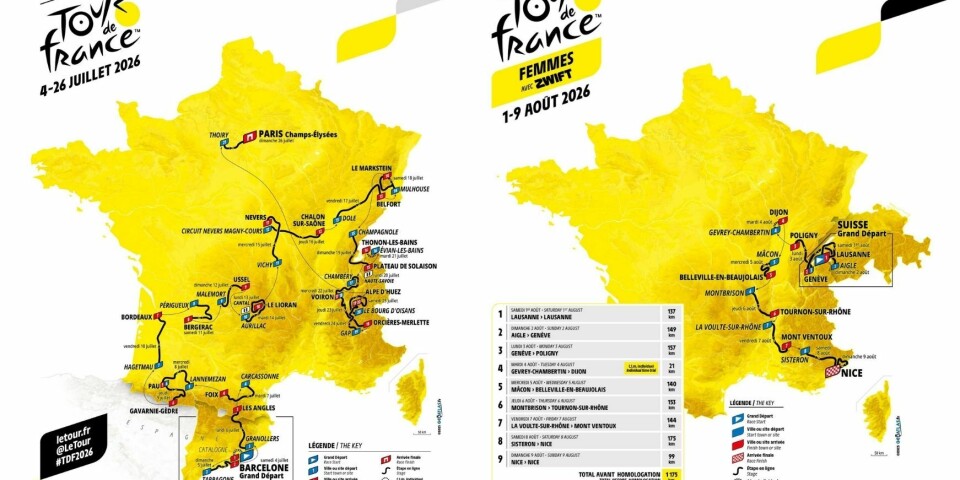-
Residents react to George Clooney’s praise of life in Var
Locals in Brignoles take pride in their most famous neighbour and his love for Provençal life
-
Rouffach: tower marks spot where witches once gathered
We recount the dark history of the Haut-Rhin village which burned 60 people at the stake for practising witchcraft
-
Classic French recipe with an exotic twist: caramelised onion soup
A dish inspired by the travels of two Paris chefs
Couple put the Viking into ancient farming
The animals, the clothes and the tools at Normandy farm are as authentic as possible, explains Samantha David

The ‘Ferme Gröning’ is a historical reconstruction of a Viking farm in Grumesnil (Seine-Maritime, Normandy).
Owners Frédéric Hanocque and Nathalie Knut Sauma Stofa raise heritage breeds of farm animals, using Viking methods as far as is practicable.
“I started it because I’m passionate about history, and our family is descended from Vikings,” said Mr Hanocque, who bears a strong resemblance to the image of a Viking from a child’s book.
He and Nathalie wear historic costumes when visitors come to the farm, and use historic implements and methods as much as possible – but the farm buildings are not part of the reconstruction.
Although they are old, some dating back to the 18th century, it would not be financially viable to replace them with authentic historical replicas. The animal breeds are all authentically Viking, however, as are the tools, equipment and farming methods. Mr Hanocque even has a 6m Viking longship which he takes out on the lake from time to time.
Medieval re-enactments are popular all across France in the summer months, and many boast music and dancing, people in costume, jousting, falconry displays, crafts, and medieval markets.
“In France there aren’t many people doing farm re-enactments with animals.
“In Denmark they exist, from the Stone Age to the medieval period, but not in France,” said Mr Hanocque. “So I decided to do it.”
He goes to medieval fairs, where he sets up a camp which people can explore to find out more about Viking life. He takes some of his animals so he can explain the history of the breeds.
He has enormous Auroch cattle, which tower over most men’s heads, as well as beautiful shaggy Highland cattle with massive curling horns.
He has Tarpan and Fjord horses, both ancient breeds, and an extraordinary collection of goats, sheep, geese, chickens and, of course, a dog; a Lapinkoïra from Scandinavia. He holds sessions for school children at the farm.
“I wear costumes for kids and they learn about farming as well as history, because I breed heritage livestock.”
Heritage breeds are genetically the oldest pure breeds, the closest to those actually farmed by the Vikings, but Mr Hanocque’s animals never go to the abattoir. “I don’t produce meat, the animals are sold to other museums and farms where they use heritage breeds.”
He does, however, produce mares’ milk, which he sells to visitors, and says is incredibly healthy. The chemical constitution of mare’s milk means it has been used for generations as a tonic.
He also has chickens which, obviously, produce eggs. One of the most unusual breeds is his Mangalica woolly pigs, which are covered in grey wool, like a sheep, and are favourites with visitors.
He says some people come to the farm because they are history fans and know a lot about the Viking way of life and others come just out of curiosity, but that it touches everyone.
“So many of us are descended from Norsemen, it’s our history, our past, our roots...”
The pair have started looking at new revenue streams including setting up a poultry yard, as well as making and selling medieval costumes.
They are also improving signage in the area to enable visitors to find them more easily. 2018 could be make or break, so this summer is definitely a good time to discover the Viking Farm.
To arrange a visit, contact the owners via the website: crffm-normandie.wixsite.com/ferme-groning
To find a medieval fête or other event near you, search for the list on adagionline.com/calendrier.asp
If you feel the urge to go full history with an authentic costume, the internet is bursting at the (hand-sewn) seams with online medieval costume shops (some more authentic than others). Even Amazon is in on the act.
























